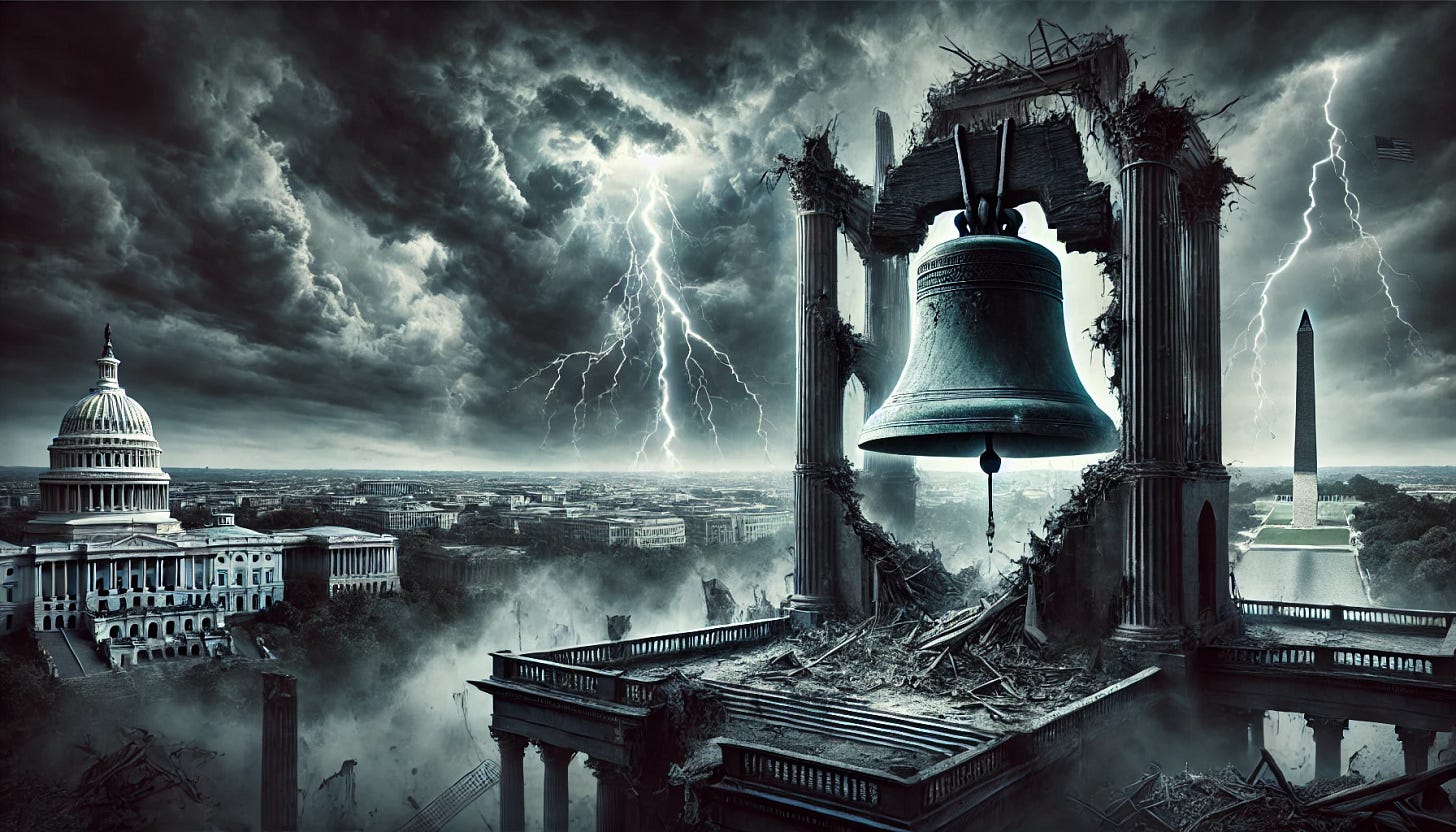Trump’s press conference is a doomsday bell for a North Korea crisis
The North Korea watcher community may have forgotten fire and fury, but another crisis will bring those memories rushing back.
The recent press conference following the tragic midair collision near Washington, D.C., provides a glimpse into a crisis management style we’ve all forgotten. The response—marked by impulsive blame-shifting, a lack of verifiable evidence, and a sidelining of expertise—raises serious concerns about how Trump will react to a geopolitical crisis involving North Korea. For the North Korea watcher community, this press conference is a doomsday bell that reminds all of what’s to come.
On January 29, 2025, a civilian passenger jet collided with a U.S. Army helicopter over the Washington, D.C. area, tragically killing 67 people. In the immediate aftermath, Trump addressed the nation in a press conference that quickly veered into familiar territory—assigning blame before all the facts were known and dismissing the role of experts who could provide a more measured analysis of the incident.
Rather than allowing investigators to determine the cause, Trump speculated wildly, hinting at foreign involvement without evidence and attacking regulatory agencies for supposed failures. His comments sidestepped the procedural necessity of fact-gathering, instead pushing a narrative that served his political instincts rather than the public’s need for clarity. In doing so, he undermined the credibility of institutions responsible for national security and emergency response.
Do you remember fire and fury?
If this is the way Trump responds to a domestic aviation disaster, what does it suggest about how he would handle an international crisis, particularly one involving North Korea? The key themes from his press conference—impulsivity, deflection of responsibility, and disregard for expert advice—are all deeply troubling when applied to a nuclear-armed adversary.
Trump’s approach to North Korea has always been erratic, swinging between aggressive threats and theatrical diplomacy. His “fire and fury” (and frankly power) rhetoric in 2017 nearly pushed the Korean Peninsula to the brink of war, while his subsequent summits with Kim Jong-un were long on spectacle but short on substance. His handling of the recent press conference suggests that, should a new crisis arise, Trump will revert to the same unreliable playbook: bombastic threats, blame-shifting, and decision-making based on gut instinct rather than strategic deliberation.
Only this time, he has a Fox News reporter as a Defense Secretary, a China hawk as a National Security Advisor, and an attitude that says nothing’s stopping me now.
North Korea is acutely sensitive to perceived provocations, and careless rhetoric from a U.S. president can have serious consequences. Miscommunication or hasty accusations—akin to what we saw in the press conference—could escalate tensions dramatically.
If, for example, an unverified intelligence report suggested North Korean aggression, Trump’s first instinct will of course be to take to social media or an impromptu press conference to make incendiary claims, rather than allowing the intelligence community and diplomatic channels to assess the situation properly.
North Korea watchers are irrelevant
One of the most alarming aspects of Trump’s crisis response is his tendency to dismiss or outright ignore expert input. In the case of the D.C. crash, aviation and military specialists were notably absent from his press conference. Instead of relying on their assessments, Trump spun his own politically convenient narrative.
This pattern also applies to Trump’s assessments of North Korea. Dealing with Pyongyang used to require an intricate understanding of its military capabilities, internal politics, and strategic culture. The aim was to avoid missteps. Misplaced accusations or ill-timed shows of force could lead to unintended military escalation.
The U.S. has career diplomats, intelligence analysts, and military strategists who have spent years studying North Korea’s behavior, but Trump instead trusts his instincts - not the informed advice of experts.
Under his leadership, the National Security Council and State Department saw a massive exodus of experienced officials, many of whom specialized in North Korea policy. If he responds to a North Korea crisis in the same way he handled the press conference, key advisors would be sidelined in favor of political loyalists or media-friendly hawks who reinforce his existing views rather than provide objective analysis.
Another striking feature of Trump’s press conference was his eagerness to deflect responsibility. Instead of focusing on how to manage the crisis, he quickly pointed fingers at others—whether it was regulatory bodies, local officials, or vague “foreign threats.” This knee-jerk reaction to blame external forces rather than taking responsibility or waiting for the facts is another trait that would be particularly disastrous in a North Korea-related emergency.
A warning to North Korea watchers?
Imagine a scenario where a North Korean missile test accidentally strikes waters near a U.S. ally. A measured response would involve coordination with regional partners, intelligence verification, and diplomatic pressure. But if Trump follows the pattern seen in his recent press conference, he’d instead rush to assign blame publicly, throw out a few catchy insults of the North Korean leader, and probably threaten military action - all before a full assessment is completed.
Given North Korea’s historical paranoia and sensitivity about U.S. intentions, this will provoke an aggressive counter-response, pushing an easily manageable crisis toward escalation.
Trump’s handling of the D.C. plane crash press conference offers a preview of how he will manage future crises with North Korea—and the outlook is concerning. His tendency to speak before knowing the facts, sideline experts, and deflect responsibility creates an environment where rash decision-making will have dire consequences.
The North Korea watcher community may have forgotten fire and fury, but another crisis will bring those memories rushing back. Trump will be unpredictable, reactive, and destabilizing.




Hey JT/JR - You need some kind of redirect from burgerflippers.com back here. The emails (and links inside the article) get stuck at the moment - they say that burgerflippers is a parked domain.